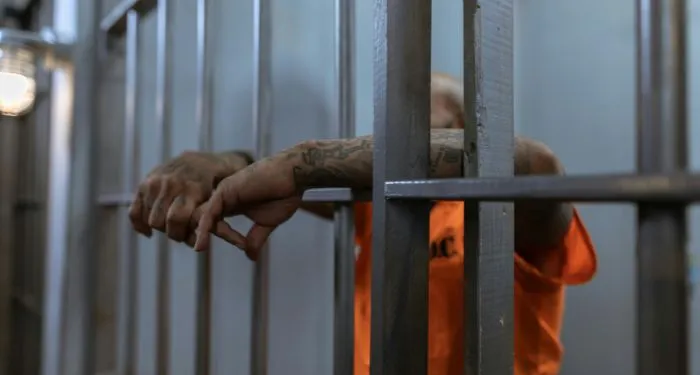
Hear First Hand from Incarcerated People Why Reading in Prisons Is So Important
With the start of Banned Books Week and Prison Banned Books Week only just in our rear view mirror, I thought to round up a brilliant series of essays penned by currently incarcerated people that was organized by my colleague Kelly Jensen, who has, quite frankly, been leading the charge in advocating against censorship.
Below are first-hand accounts of currently incarcerated people and their experiences reading in prison.
Free Prison Tablets Aren’t Actually Free
State prisons censor more books than schools and libraries combined—yes, even amid astonishingly high numbers of book bans nationwide. Despite this long-documented reality, prison censorship coverage continues to be limited and legislation to ensure that incarcerated individuals have access to libraries, as well as print and digital books, is sorely lacking. Recidivism goes down when individuals experiencing incarceration have access to books, but prisons limit access by not having libraries or only having old and out-of-date materials in those libraries; putting extreme limits on where and how books can be sent to those inside the facility; overcharging for a limited selection of digital books on pricey, proprietary, and lousy ereaders; allowing mailroom employees to pick and choose what they determine to be “appropriate”; or a combination of these or other factors.
To read the full essay, click here.
Uninspired Reading by Ken Meyers
We’d been able to buy our GTL “Inspire” tablets for three years before the Pennsylvania Department of Corrections expanded the short list of functions to include ebooks. Under normal circumstances, I would have been delighted. But this was no act of generosity by the DOC. The ebook functionality came in the wake of 2018’s DOC-engineered drug-exposure “crisis” that led to a contract with Smart Communications to scan our mail, thus eliminating that stream of paper, and which briefly banned all books before settling on a DOC-run Security Processing Center to inspect books and periodicals for contraband. The ultimate DOC policy might not have banned physical books outright, and it’s possible there isn’t an explicit plan to try to reduce the number of books entering Pennsylvania prisons, but delays in delivery, damage to books, and the frequency with which books are lost certainly discourage ordering them. Still, whatever the DOC’s motivation, ebooks had to be a win for us inmates as well.
To read the full essay, click here.
Mark Twain Goes to Prison
Nearly twenty years ago, when I first got to prison I never thought I would become a writer, read John Updike, Luigi Pirandello, have a tablet that allowed me to play games and listen to music, or debate the merit of an old Mark Twain quote. Yet I here I am.
Entering the prison library as a fish or newbie, I was astounded to find so many books on the shelves, and to notice how reverently the other prisoners treated them. On my first day, I was shocked to see an older prisoner chastise a younger man for cracking the spine of a larger book he was perusing. “Young man, don’t do that. Don’t crack the spine on that book. It causes the pages to fall out. What we’ve got, we’ve got to take care of.” When the younger prisoner didn’t scoff at the older prisoner’s advice, I figured I’d best follow suit. I treated each book I examined like it was a precious gem.
To read the full essay, click here.
*All-Access Members Can Continue Below for Must-Read BIPOC Releases Coming Out This Week*
Celestina’s House by Clarissa Trinidad Gonzalez (Historical Gothic Fiction)
Aisle Nine by Ian X. Cho (YA, Sci-Fi)
All Our Ordinary Stories: A Multigenerational Family Odyssey by Teresa Wong (Memoir, Graphic Novel)
Come By Here: A Memoir in Essays from Georgia’s Geechee Coast by Neesha Powell-Ingabire (Memoir)
Devils Kill Devils by Johnny Compton (Horror)
Flamboyants: The Queer Harlem Renaissance I Wish I’d Known by George M. Johnson, illustrated by Charly Palmer (YA, Memoir)
Granny Cloud by Farnoosh Fathi (Poetry)
How to Build a Fashion Icon: Notes on Confidence from the World’s Only Image Architect by Law Roach (Fashion Memoir)
Love and Sportsball by Meka James (Sapphic Romance)
Payal Mehta’s Romance Revenge Plot by Preeti Chhibber (YA, Romance)
Read More Reading and Resistance Posts
- The Revolution Will Be Picturized: Graphic Novels about Social Justice
- Introducing: Reading and Resistance—And How Literature Has Always Been Tied to American Freedom
- 15 Essential Books to Read for the Resistance
- Censorship in Prisons is Part of Slavery’s Legacy
- The Neglected Tale of the Tougaloo Nine and their 1961 Read-In
- Journalist, Activist, Feminist: Who Was Ida B. Wells?
- Clara Stanton Jones: Librarian and Advocate
- A History of Racism in American Public Libraries









